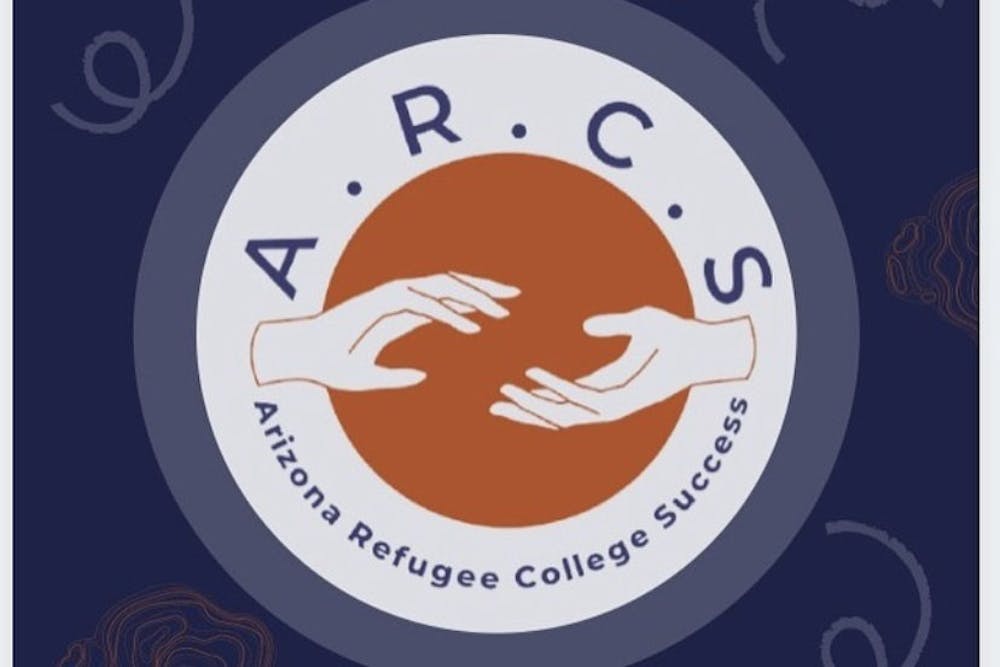With a vision to uplift refugees in Arizona high schools, ASU students formed Arizona Refugee College Success this fall semester.
Often, refugees in the U.S. go into high school with a limited sense of how to navigate the college admissions process, said Mariam Ewais, ARCS co-president and a junior studying biological science and global health. ARCS aims to mentor high school refugees studying in Arizona so that they may have a higher chance at success in high school, college and beyond.
"We just want to demystify that process and be like, 'Hey, you know, it's not as bad and crazy as you think. (College is) actually quite beneficial,'" Ewais said.
Throughout high school, Ewais helped her classmates navigate the college admissions process. It wasn't until she came to ASU that she realized how common it also is for refugees in high school to not have access to the resources they need to prepare for higher education such as college entrance exam tutoring and college admissions advice.
Pamela DeLargy, a professor of practice in the School of Politics and Global Studies and executive director for Education for Humanity, an organization working towards expanding education opportunities for refugees around the world, said many refugees don't pursue higher education because they've never heard the benefits of it and don't know how to seek scholarships.
"Here in Phoenix, a lot of young people from refugee communities attending high school never even meet with a guidance counselor. So I think that they don't learn enough about the scholarships available," DeLargy said.
Ewais saw this need wasn't being addressed in the Phoenix metropolitan area, so she and co-president Maria Boby, a junior studying biological science and social work, launched ARCS this semester to help.
"Me and Maria had been talking about creating a program to serve the refugee community because we're both really passionate about bettering their circumstances," said Ewais.
To find high schoolers to mentor in Arizona, the ARCS team reaches out to individuals who are in contact with refugees, such as Catholic charities and high schools with students from countries such as Somalia.
The ARCS mentorship begins with a presentation from the team on the pros and cons of applying to college — one of the pros being a higher chance of employment.
According to Ewais, this is something that is common knowledge for those who grew up in the U.S. public school system but is rarely taught to those who moved to the country as a teenager, and it is the group's mission to eliminate that miscommunication.
"You go to college to get a degree so you can get a good job and have a good life. So why isn't the (refugee) community being informed of these opportunities?" Ewais said.
According to the Wall Street Journal, states award $2 billion in scholarships a year just for the scores students achieve on standardized tests. This amount of financial aid could mean the difference between whether or not someone from a low-income family receives a college degree.
By having access to free tutoring sessions for tests like the SAT and ACT, Boby said students in the program could have an increased chance at scholarships. According to the Department of Education, as college tuition has risen, it has become out of reach for many of the families it would help.
DeLargy believes the mentorship ARCS provides could be the most beneficial component of the organization.
"I think it's a fantastic student initiative because there are so many young people from the resettled refugee communities who will benefit from higher education but they somehow get stuck in sort of dead-end jobs because they just didn't know enough about what path to take to get to college," DeLargy said.
Hajer Rahee, outreach director for ARCS and a junior studying molecular bioscience and biotechnology, has a personal connection to her mentees and sees herself in the students ARCS helps.
"I didn't have good access to SAT tutoring or ACT tutoring, because my family is low income so I didn't want to put a burden on them. One of those classes costs quite the amount of money to be enrolled in," Rahee said.
Although the academic part of a university is important, many students are concerned with what it may be like socially. Uncertainty is common for those entering college, however, this feeling of anxiety is heightened among refugees who may not know what to expect, Boby said.
ARCS hopes to mitigate this struggle many teenage refugees face and help them find a community and the resources they need to succeed by "providing a sense of comfort and just easing up their nervousness about this new chapter," Boby said.
Going into college can be daunting for someone who has already lived with uncertainty, such as refugees. Through their academic tutoring and social mentorship, the ARCS team aims for a more educated, successful refugee community.
"You can do more than just survive — you can thrive and succeed, just like everyone else in America," Rahee said.
Reach the reporter at kkavery20@gmail.com and follow @_its_just_k_ on Twitter.
Like The State Press on Facebook and follow @statepress on Twitter.
Continue supporting student journalism and donate to The State Press today.




